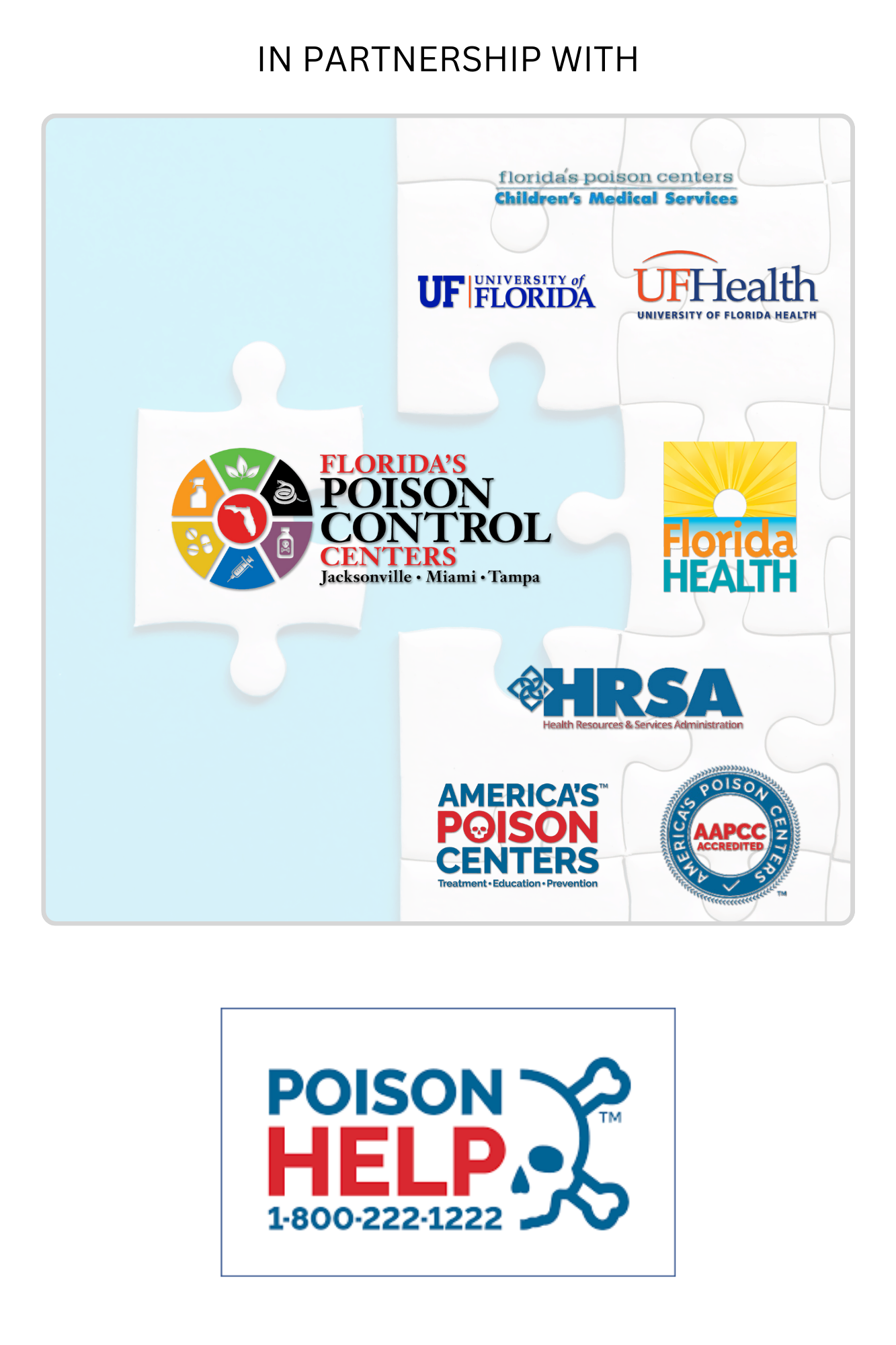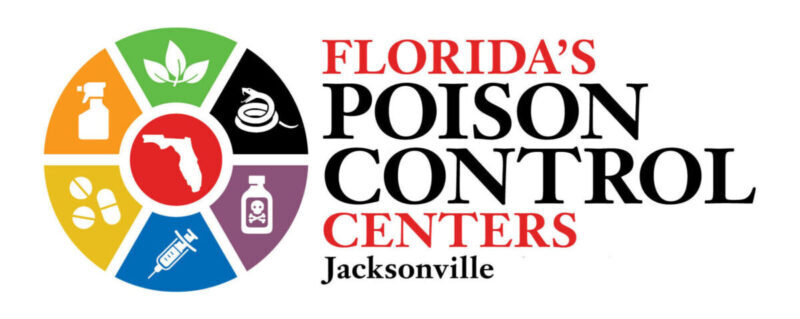Welcome to the
Jacksonville
Florida/USVI Poison Information Center
Welcome to the Florida/USVI Poison Information Center – Jacksonville (FPIC/Jax). FPIC/Jax is a 24-hour poison emergency treatment and information resource for healthcare professionals and the public in Florida’s northern and eastern coastal counties. It is one of three Centers comprising the Florida Poison Information Center Network. To reach the state-wide network site, please follow this link: Florida Poison Control Network.
The center, located at UFHealth-Jacksonville Medical Center, is certified by the American Association of Poison Control Centers (AAPCC) as a regional poison center and serves a population of approximately six million people. FPIC/Jax is a cooperative effort between the University of Florida College of Medicine, UFHealth-Jacksonville, The University of Florida Health Science Center/Jacksonville, and the Children’s Medical Services, State of Florida Department of Health.

